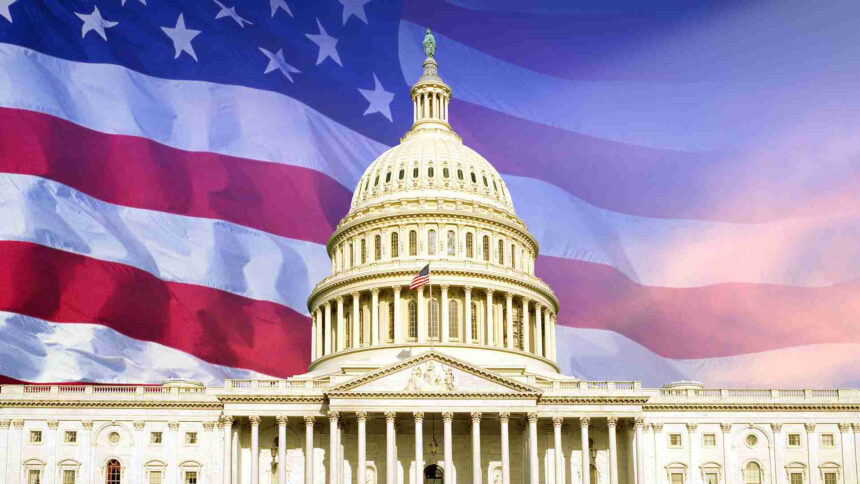The US government has introduced a new policy that significantly impacts the legal status of international students, leaving thousands of individuals uncertain about their future in the country. The policy, revealed amid ongoing lawsuits, outlines the procedures for terminating students’ legal status and has caused confusion among those affected.
Policy Change Sparks Widespread Confusion
In recent weeks, many international students across the United States have learned that their legal status was abruptly cancelled, with little to no explanation provided. This has sparked fear and uncertainty, forcing some students to either go into hiding or abandon their studies to return home.
The development comes after a series of court challenges by students whose legal status had been revoked. On Friday, following mounting legal pressure, federal officials announced that the government would restore the status of affected students while it works on creating a clearer framework for future terminations. On Monday, the government unveiled its new policy, detailing the grounds under which students’ legal status can be cancelled, including the revocation of the visas used for their entry into the US.
Read More: Temporary Relief for International Students as Legal Status Restored, but Visa Confusion Remains
Criticism of Expanded ICE Authority
Brad Banias, an immigration lawyer representing one such student whose status was terminated, criticized the new guidelines, saying they greatly expand the authority of Immigration and Customs Enforcement (ICE). According to Banias, the policy shift now allows ICE to terminate students’ status even in cases where no serious violations have occurred, simply based on the revocation of their visas.
“This gives them carte blanche to have the State Department revoke a visa and then deport those international students, even if they’ve done nothing wrong,” Banias said.
For many of the affected students, the infractions listed on their records were minor, such as traffic violations. Some students have expressed confusion, stating they have no idea why they were targeted in the first place.
One such student, Akshar Patel, an international student from Texas studying information systems, had his status terminated and later reinstated this month. Patel, who had been charged with reckless driving in 2018—though the charge was later dropped—has sought a preliminary court ruling to prevent his deportation. Patel’s case has become a focal point in the legal battle surrounding the new policy.
Court Challenges and Legal Uncertainty
In court hearings, lawyers for the Department of Homeland Security (DHS) explained that they ran the names of international students through the National Crime Information Center (NCIC), a database maintained by the FBI that includes information on crimes, suspects, missing persons, and individuals who have been arrested. The database even includes data on people who were never charged with a crime or had charges dropped.
Through this search, DHS identified around 6,400 students, including Patel, who appeared in the NCIC database. Patel’s name appeared due to the reckless driving charge, which was later dropped but remained in the system. His name, along with 733 other students, was listed in a spreadsheet forwarded to a DHS official, who instructed that their legal status be terminated within 24 hours.
Also Read: World’s Largest Sovereign Wealth Fund Reports $40 Billion Q1 Loss Amid Tech Sector Downturn
US District Judge Ana Reyes, presiding over Patel’s case, expressed concerns over the hasty decision-making process. She pointed out that the government had acted without properly reviewing individual cases, leading to the wrongful termination of international students’ legal status.
“All of this could have been avoided if someone had taken a beat,” Reyes said, noting that the government’s actions reflected an “utter lack of concern for individuals who have come into this country.”
The confusion surrounding the status terminations has created chaos at universities. Historically, international students visa statuses were updated based on information provided by colleges about students’ enrolment status. However, with the recent changes, students were informed that they no longer had legal status, leading to widespread uncertainty.
While government attorneys have argued that the database change was an “investigative red flag” rather than an actual revocation of status, the move still left many students in limbo. Some were even labelled as “failure to maintain status,” though lawyers insisted this did not necessarily mean they were subject to deportation.
“Mr. Patel is lawfully present in the US,” stated Andre Watson of the Department of Homeland Security. “He is not subject to immediate detention or removal.”
In the End
Despite the government’s reassurances, Judge Reyes declined to issue a preliminary injunction that would have prevented Patel’s deportation. She encouraged both sides to work toward a settlement that would allow Patel to remain in the US.
As the legal battles continue, the broader implications of the policy remain unclear. The new guidelines are expected to impact thousands of international students, and the lawsuits filed by international students and advocacy groups could shape future regulations governing their legal status.
Follow 10X Times for more business news.






